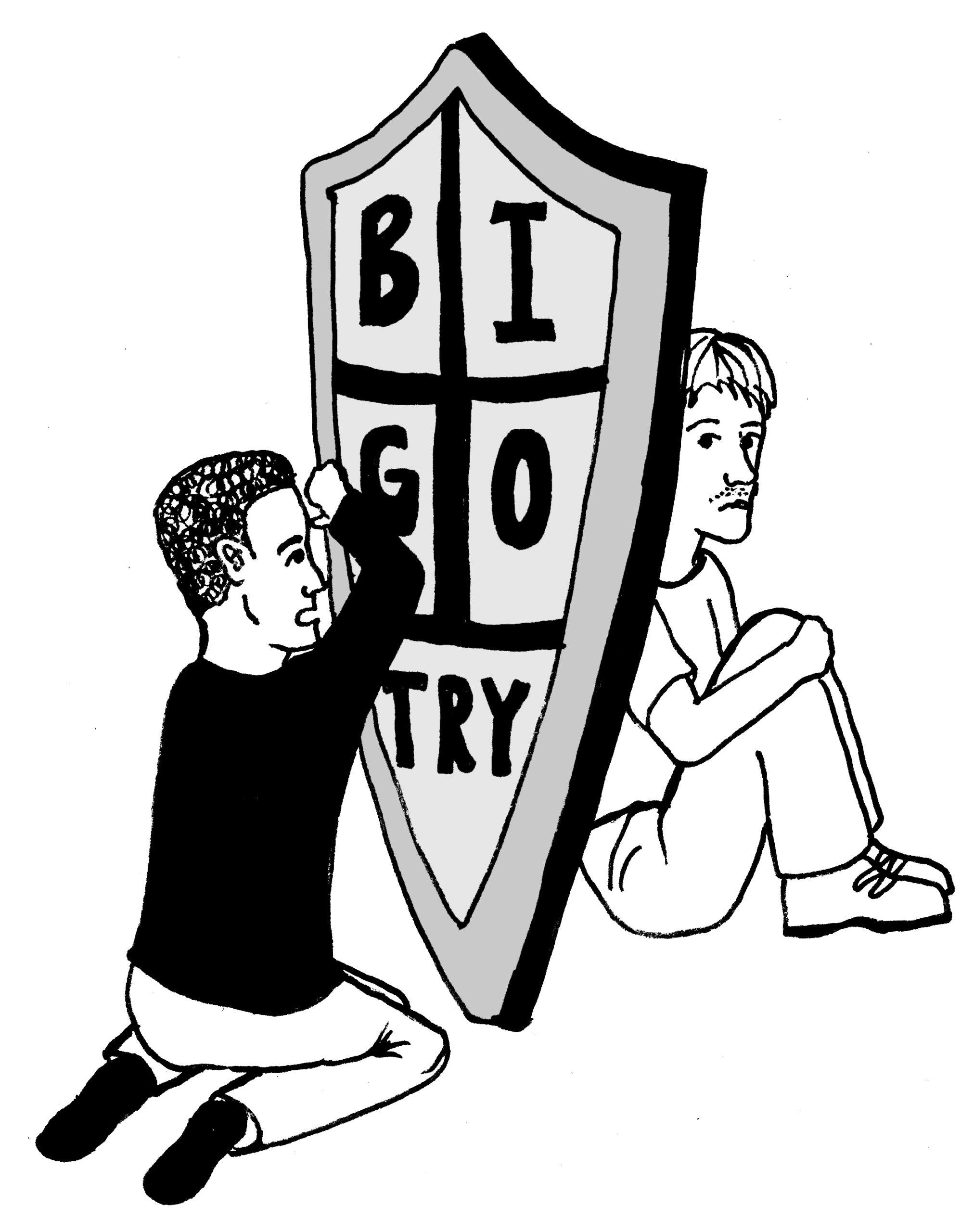Finding compassion and forgiveness in disagreement
March 3, 2017
 This
piece represents the opinion of the author
.
This
piece represents the opinion of the author
.
I’d like to think of bigotry as misunderstanding, that people are prejudiced because it makes sense to them to be so. In my lifetime, I have come into contact with individuals whom I have avoided associating with because of their discriminatory views. I hope that this fog of bigoted expressions that surrounds these individuals hides a genuinely kind person. Perhaps behind closed doors or in select company ignorant people are kind, loving and maybe even fun to be around. They must simply make inappropriate and inaccurate distinctions of who is worthy of their character and who deserves their disregard. Hopefully, people are revealing the concentrated worst of themselves through such conduct. I completely endorse condemning of this side of people, but I want to believe in anyone and everyone’s potential to be a humane, loving and an overall good person. When people are being prejudiced, they aren’t being themselves, or at least not their best selves. Ideally, we have the freedom to see people for their best rather than their worst. Though it may be difficult to do so, we should make an effort to remember behind every angry and hateful facade is (likely) a confused but well-intentioned and caring person.
Now, to grant this benefit of the doubt is not to sympathize with the enemy—or the oppressor. It is to envision a future in which all people can live free of unnecessary social limitations, including those who were once confused about right and wrong. Forgiveness is a cornerstone of social progress, for without forgiveness one system of hatred is replaced by another. Criticism and punishment are important in order to discourage certain behaviors and identify them as unacceptable.
However, punishment without forgiveness becomes revenge. If there is no hope of people being forgiven, if there is no place in the future for the ignorant (note: not the ignorance), then there is no hope for their enlightenment. If we cannot give forgiveness and make space for these people in our envisioned future, then we have failed them just as those who perpetuate inequality have failed us.
This past year has been full of controversy. People are very divided on various issues. Healthy discussions between disagreeing parties are rare and tensions are high. Despite the multitude of divisions, people on all sides are working to address the issues they recognize as detrimental to society. This is a wonderful thing, for communities, especially diverse ones, should identify and eradicate behaviors and beliefs that cause unwarranted stress and harm to others. That being said, we must move forward in a more inclusive manner. The success in reaching each other is impeded by our unwillingness to forgive and our craving to punish. Many voiced concerns focus on who to blame or what crimes have been committed rather than how to move forward together as a community. Our expressions must be less spiteful and more constructive. We will not make any progress if we are constantly trying to humiliate those who disagree with us. If we are to ask others to be more considerate, kind and accepting, then we must remain so through the entirety of the process, even when we don’t think we should have to be.
Too often we focus on what we shouldn’t have to do. We stubbornly refuse to tend to problems that we did not create, recognizing it to be the responsibility of the offending party to find a resolution. This is understandable, but it is, in fact, counterproductive. If we are not willing to contribute to a solution, then nothing will get done. The communities in which we live are shared spaces, much like an apartment, making all of their residents somewhat like roommates. If one roommate makes a mess, everyone suffers. If the other roommates refuse to clean up after the perpetrator (who will not clean unless assisted), then the mess will remain and likely grow. It is reasonable to hold the mess-maker accountable for their actions, but to live in filth because we shouldn’t have to take care of it is foolish. We point fingers when something is wrong. This is fine, but it cannot stop there. In order to really go somewhere with the movements to evoke social change that we lead and support, we must find a way to forgive and rehabilitate those whom we perceive as misled.


Comments
Before submitting a comment, please review our comment policy. Some key points from the policy: